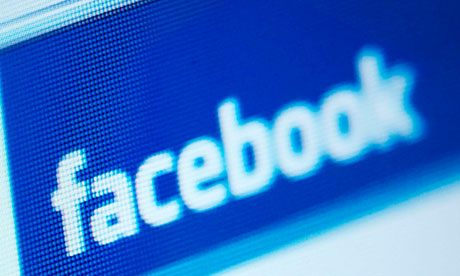
Facebook has been pushing hard on its mobile strategy . Photograph: Karen Bleier/AFP/Getty Images
Facebook bobbed above a $100bn market capitalisation for the first time on Monday, almost exactly one year since its record low.
Last week, Facebook's stock rose to $38 – its IPO value – for the first time, and on Monday it closed at $41.34, bringing the company's value by market capitalisation to $100.6bn.
Coincidentally, Monday also saw the end of a protracted court case in which Facebook will pay a $20m settlement to users who objected to their information being used as part of advertiser promotions.
Five plaintiffs who brought the case in 2011 over Facebook's "sponsored stories", which use "likes" to promote brands to other users, apparently in conflict with a Californian law which prevents advertisers using endorsements without explicit permission.
The group protested that users could not contra or opt out of the ads and were not paid for the scheme, which earned Facebook around $234m between January 2011 and August 2012, according to court documents.
Plaintiffs also complained that the scheme did not afford sufficient protections to younger users. The judge initially rejected Facebook's proposed $20m settlement, but under a revised deal Facebook will reimburse 614,000 users who responded to a notification of the class action.
It is the latest event in a series of controversies surrounding Facebook's use of consumer data for commercial ends, coming at the same time as Facebook's milestone market value.
Facebook's chief operating officer Sheryl Sandberg anticipated the surge, selling $91m worth of shares in early August, a regulatory document showed.
Facebook's transition into a publicly traded company has been extremely bumpy. It began with a much-hyped IPO, which saw little enthusiasm from chief executive Mark Zuckerberg, who attended only one prior meeting with investors.
During the flotation, the Nasdaq exchange froze three times within an hour, unable to handle the scale of interest from potential investors and from staff selling their stock; in May 2013, Nasdaq was fined $10m, the biggest ever fine of its kind, for the glitches.
Meanwhile, the investment bank Morgan Stanley, which was underwriting the IPO, bought back millions of shares to artificially inflate the price on day one.
Facebook's market value dropped 20% in its first three days, and the company then faced accusations that large investors were tipped off in advance about lower than expected earnings, breaching financial regulations.
Concerns were also raised about whether Facebook was sufficiently prepared for the shift to mobile and the impact that could have in its revenues, though the company has subsequently pushed hard on its mobile strategy.
Facebook has since launched Home, Facebook-centric mobile software, and revealed plans to allow marketers to message Facebook usersthrough their mobiles. eMarketer estimates that in 2012, Facebook already accounted for the majority of mobile display revenues in the US worth $4.27bn (£2.8bn).
• Have you read about the US government paying Facebook and other consumer web companies to compensate them for costs incurred in complying with surveillance?







No comments:
Post a Comment